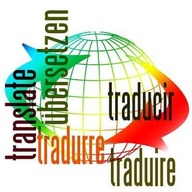The International Energy Agency (IEA) is a key autonomous intergovernmental organization that plays a vital role in shaping global energy policies, providing data analysis, and promoting sustainable energy solutions worldwide. Established after the 1973 oil crisis, the IEA has evolved into a leading authority in energy security, clean energy transition, and international cooperation among its member and partner countries.
International Energy Agency: Information on the International Energy Agency?
The International Energy Agency is headquartered in Paris and was founded in 1974 within the framework of the Organisation for Economic Co-operation and Development (OECD). Its original mandate was to ensure energy security by coordinating responses to major oil supply disruptions among its member countries. Today, the agency has expanded its scope from oil security to encompass all aspects of the global energy system including natural gas, coal, renewables, nuclear power, hydrogen, and critical minerals necessary for the clean energy transition. The IEA produces comprehensive policy advice, global and regional energy analyses, and statistics for over 150 countries. It actively supports the energy transition in line with climate goals such as the Paris Agreement, focusing on net zero emissions, energy efficiency, and clean technology adoption. Membership includes 31 countries with additional association countries representing over 75% of global energy demand.
Legacy
The legacy of the International Energy Agency is rooted in its foundational role responding to the 1973 oil crisis. It established a framework for energy cooperation among industrialized nations that emphasized emergency oil sharing, energy conservation, and diversification of energy sources. Over the decades, the IEA has become a globally respected platform for energy data transparency, policy coordination, and technology collaboration that advances both energy security and environmental sustainability. The agency's publications, such as the World Energy Outlook, have become industry standards for energy forecasting and scenario planning. Its ongoing evolution to include clean energy technologies and broader partnerships with emerging economies has solidified its leadership in the global energy transition while maintaining core commitments to energy supply stability.
International Energy Agency : What people say about it?
Opinions about the International Energy Agency generally recognize it as the authoritative source of energy data, analysis, and policy recommendations globally. Experts and policymakers often cite the IEA for its rigorous and transparent energy statistics and its influential role in shaping international energy policies. The agency is praised for expanding beyond fossil fuel security to actively driving clean energy innovation and climate action. However, some critics emphasize the need for the IEA to accelerate its clean energy goals further and adapt more rapidly to emerging climate imperatives. Overall, it is viewed as a cornerstone institution in global energy governance, balancing the dual challenges of energy security and sustainable development.
Where to find out more?
Additional information about the International Energy Agency can be found on its official website, which offers access to its numerous reports, data sets, and press releases. The agency’s flagship publications like the World Energy Outlook and Energy Technology Perspectives provide in-depth insights into global energy trends. The IEA also participates in major international energy conferences and collaborates with governments, the private sector, and international organizations. For the latest updates and expert discussions, social media channels and professional platforms also share news and analyses related to IEA activities.
International Energy Agency Summary
Discover how the International Energy Agency is driving global energy security and the clean energy transition. Stay informed about energy policies shaping our future with data and analysis from the trusted global energy authority.



